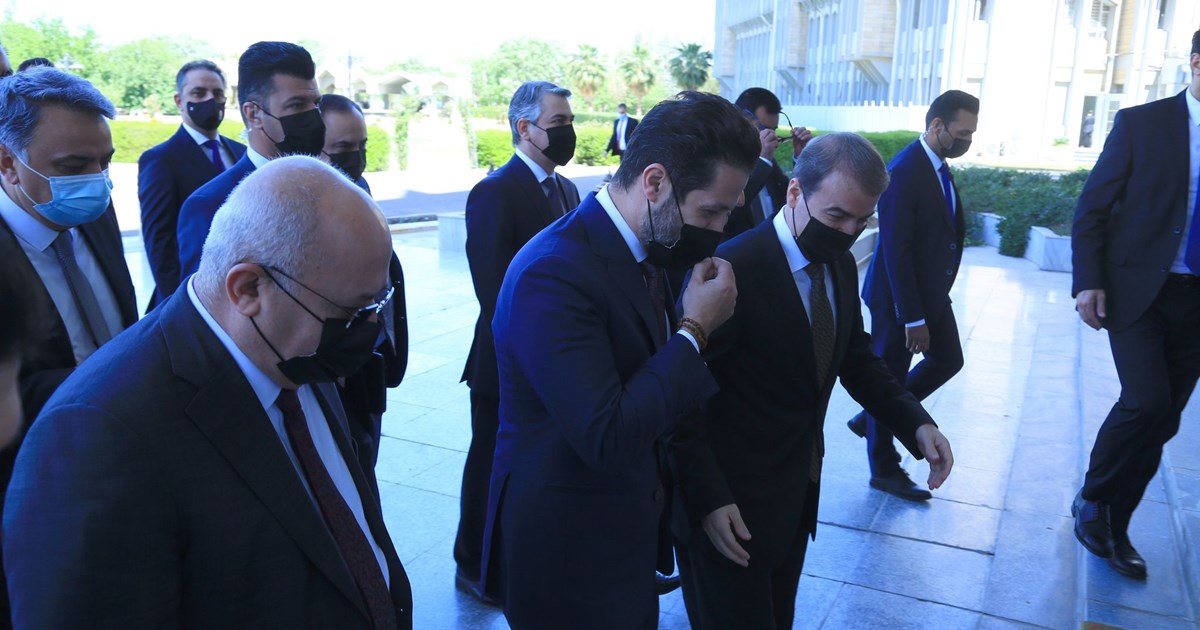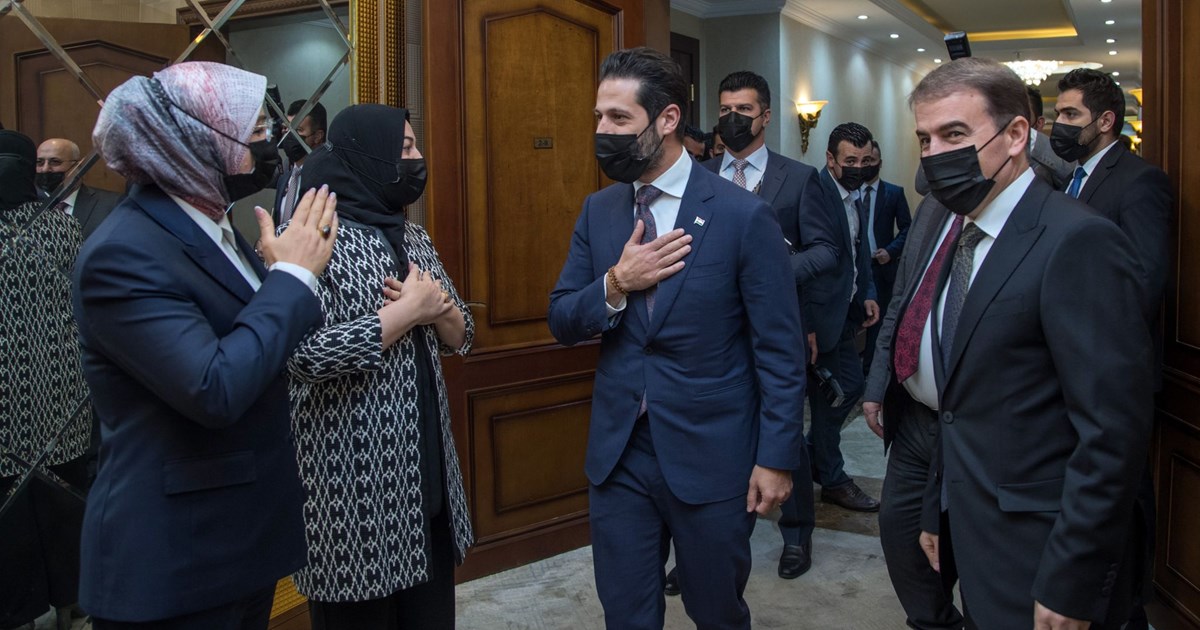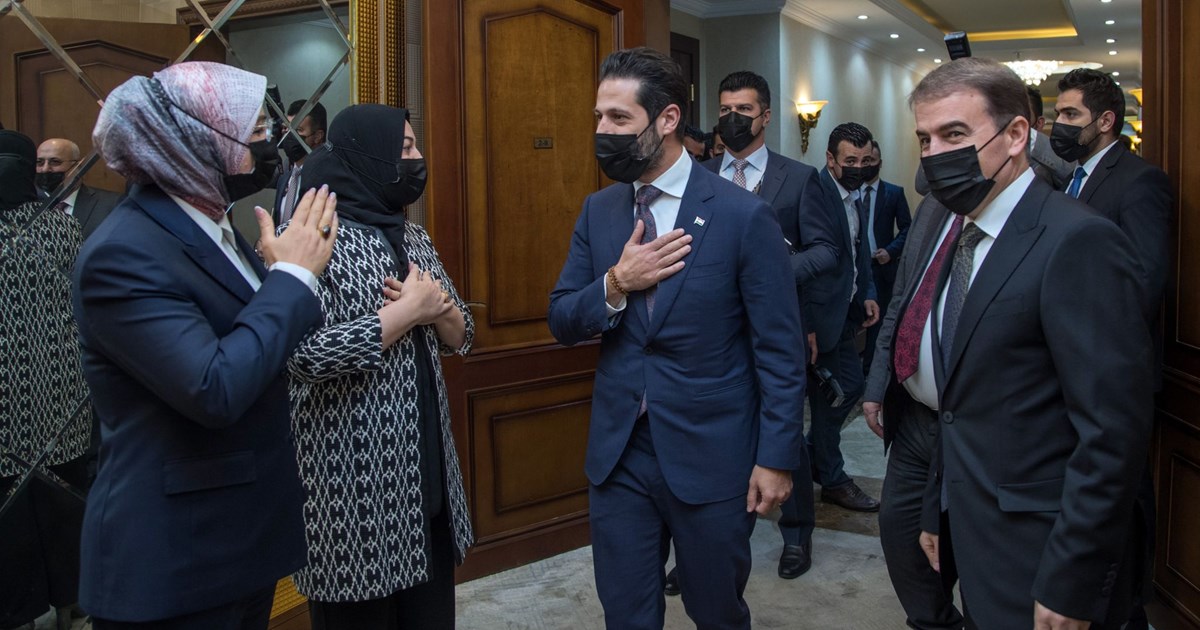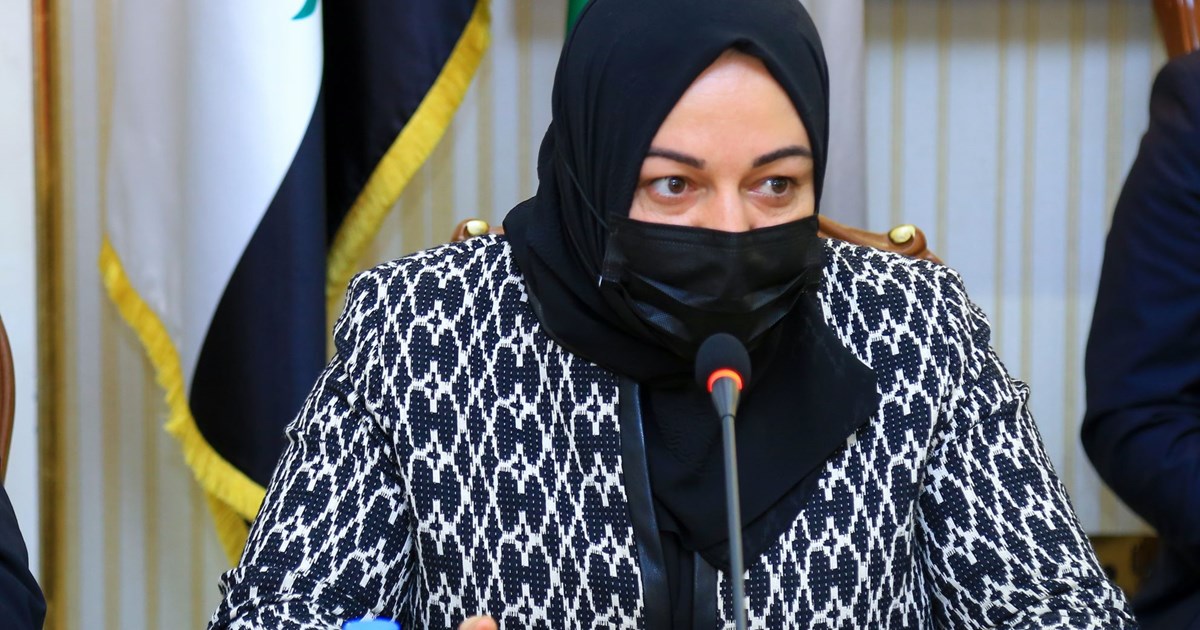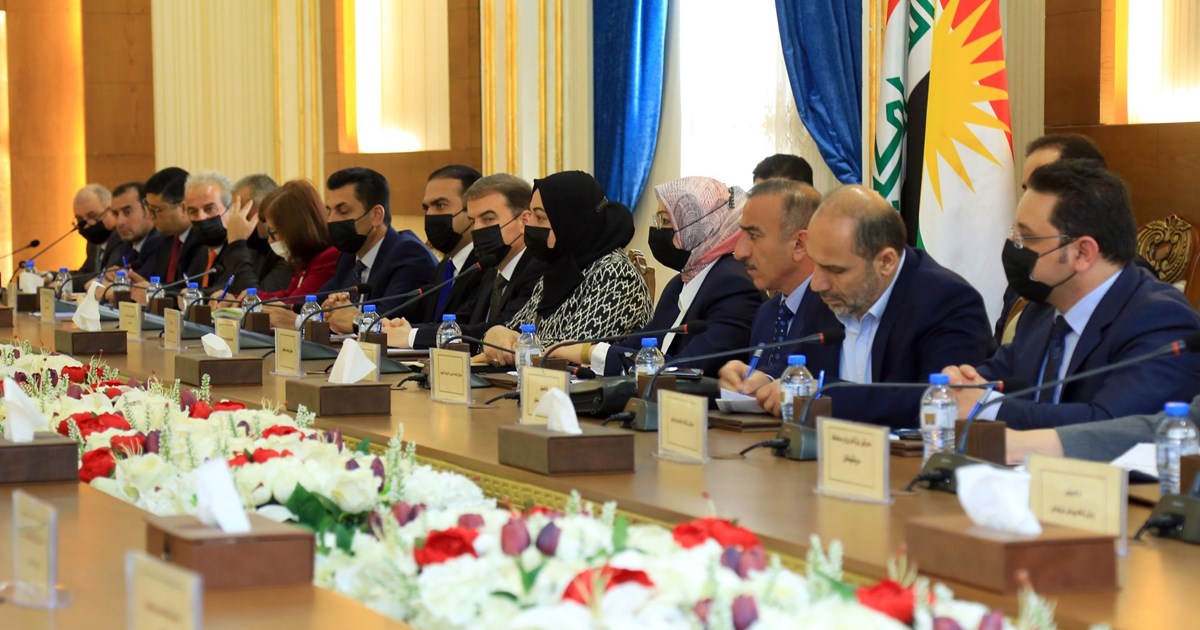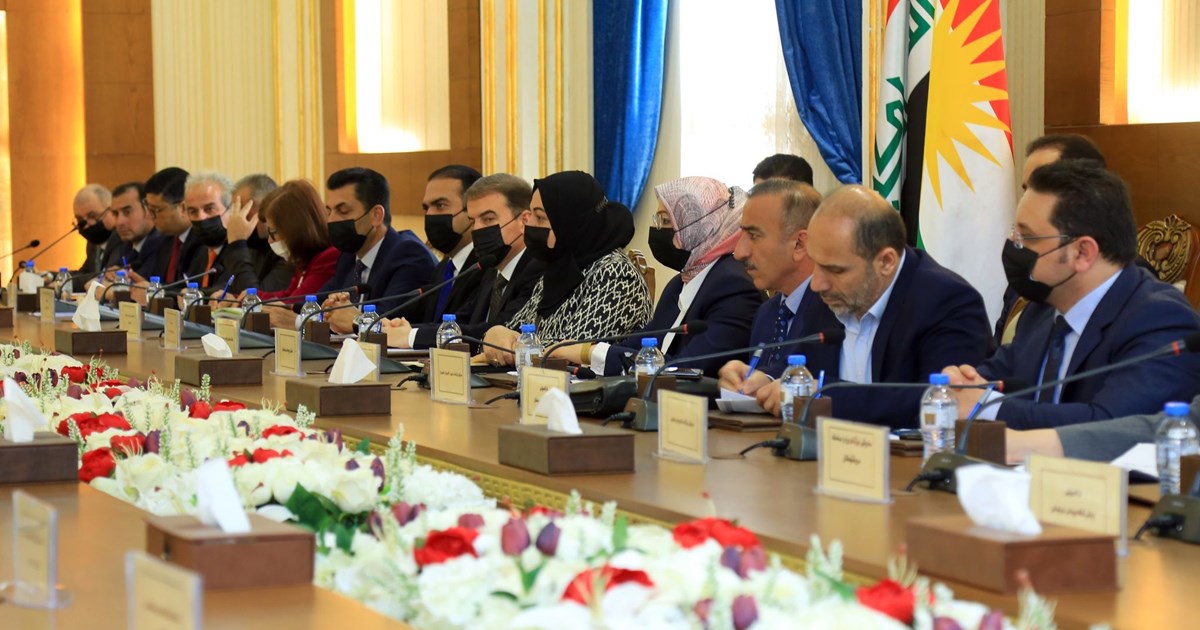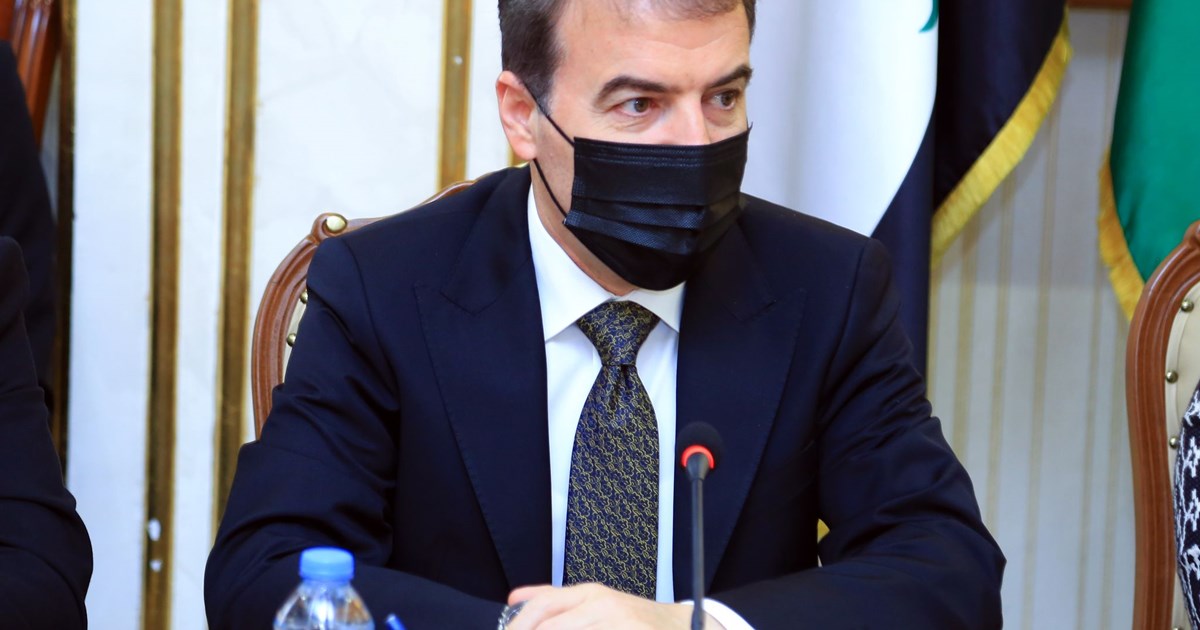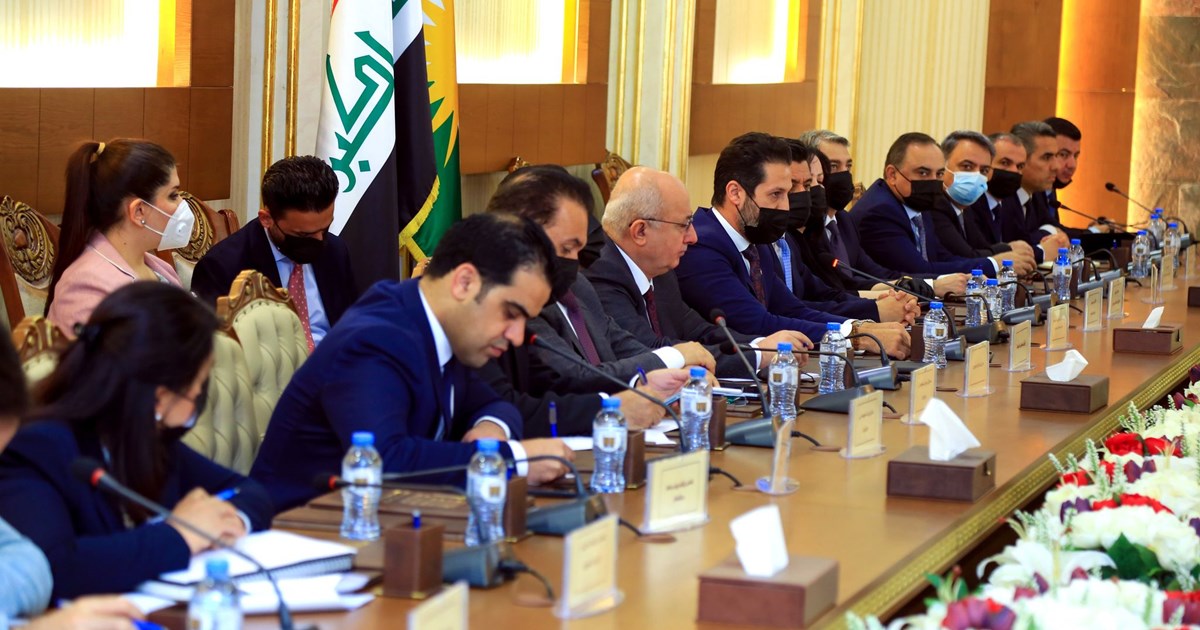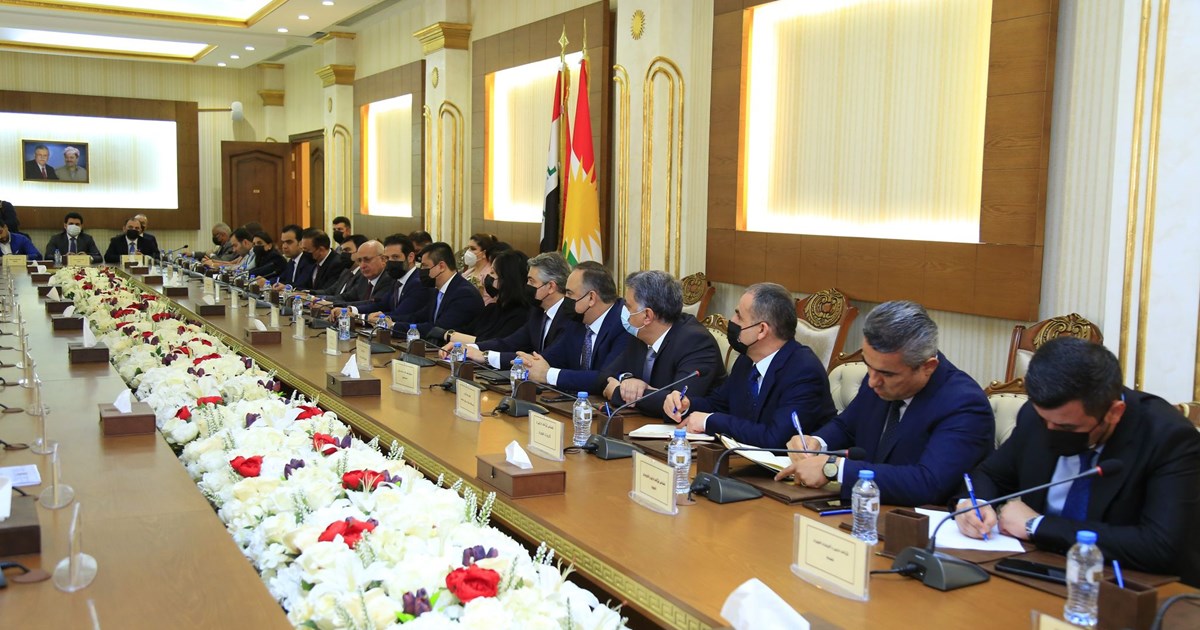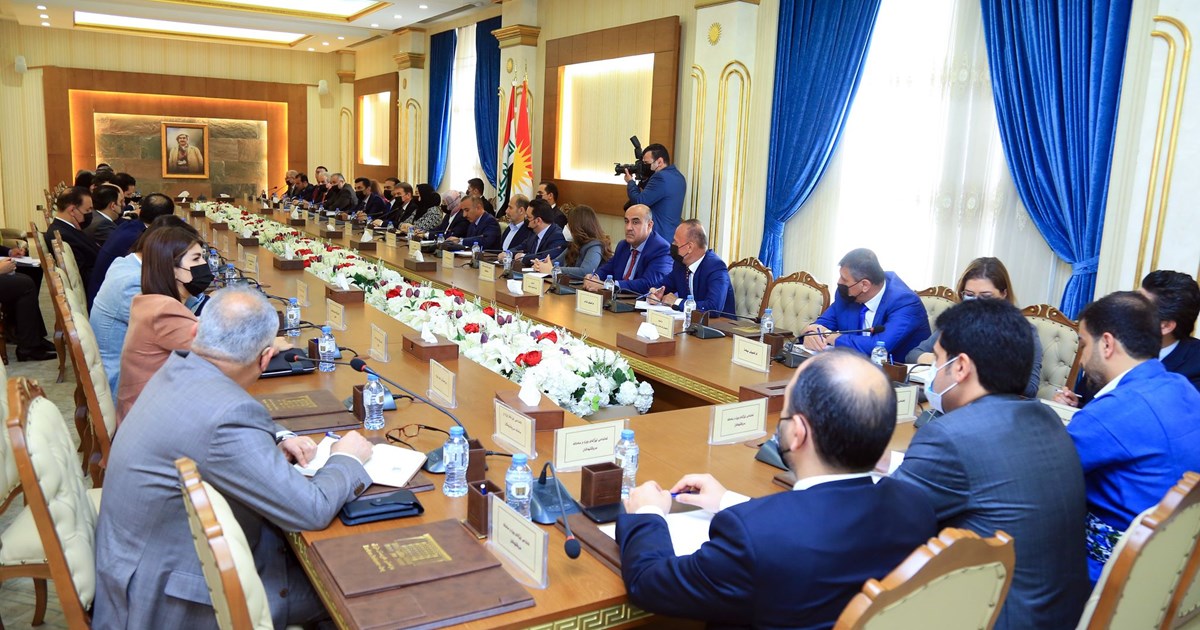Parliament and KRG discuss Kurdistan Region's rights and responsibilities in Iraq 2021 Budget Law
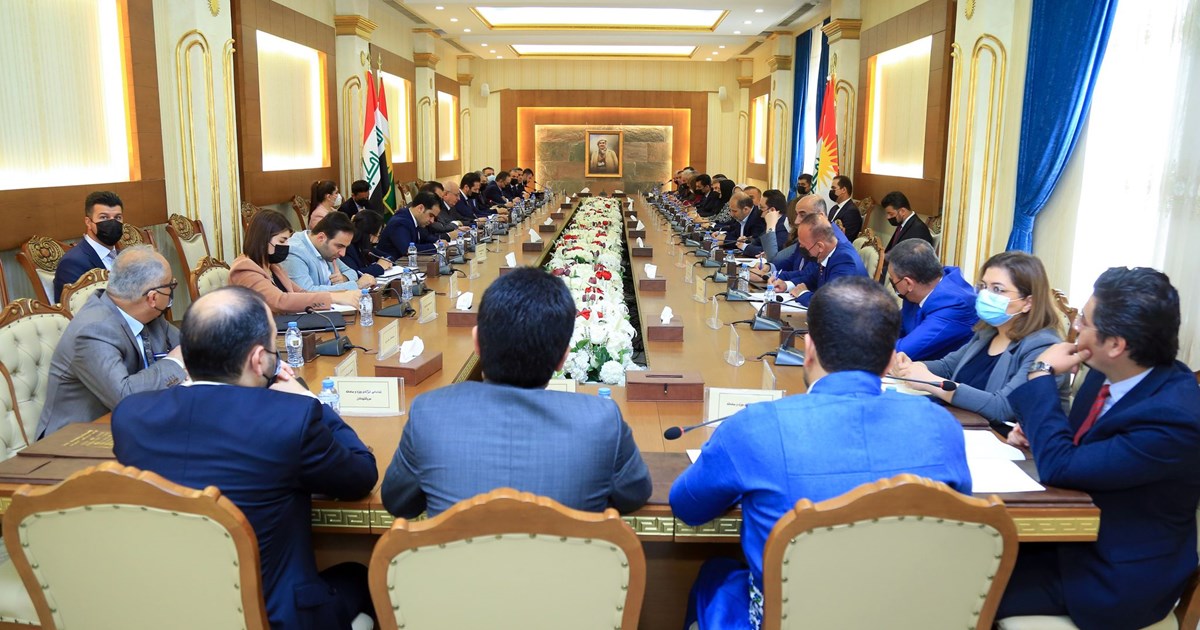
Kurdistan Parliament Speaker Dr. Rewaz Faiq on 12 April chaired a meeting with the KRG’s negotiating team with Baghdad, led by Deputy Prime Minister Qubad Talabani, about the Iraq 2021 budget law and Kurdistan Region’s own budget bill.
The Speaker, together with Deputy Speaker Hemin Hawrami, Secretary Muna Kahveci, the heads of the parliamentary parties and chairs of the finance, legislative, and natural resources committees, met with Deputy Prime Minister Talabani and his colleagues in the KRG negotiating team.
Speaker Faiq and Deputy Speaker Hawrami commended the KRG for the hard work and patience that achieved Kurdistan Region’s share in the Iraqi 2021 budget. Kurdistan has not received any of its share of the Iraqi budget since spring 2020, and the negotiating team worked for months to negotiate the payment of Kurdistan’s share in 2021.
They stressed the importance of cooperation between Parliament and the Government and of explaining the outcome of the talks between Erbil and Baghdad. They said that the details of the negotiations, the Kurdistan Region's support for Iraq's general budget and its future impact are essential questions for the people of Kurdistan and Parliament.
Deputy Prime Minister Talabani, the head of the KRG negotiating team, stressed that the negotiations had succeeded with the support of all three presidencies (Presidency of the Region, of Parliament and of the Council of Ministers) and after months of talks and efforts.
Restoring Kurdistan Region’s share of the Iraqi budget will help improve the economy and finances, restore trust between the KRG and the Iraqi Federal Government and pave the way in the future for solving several outstanding issues, he said.
The KRG delegation explained the mechanism agreed between Erbil and Baghdad for the budget, and the Deputy Prime Minister said, “The KRG is committed to our responsibilities set out in the 2021 Iraq Budget Law so that we secure the financial rights of the Kurdistani people.”
He added that the agreement was achieved because of the mutual understanding that was reached through very frank discussions, presenting of data, openness about Kurdistan’s financial rights, the budget, income and expenditure, and establishing provisions in the law in order to implement them.
Mr. Talabani continued, “The KRG is committed to fulfilling the agreement and our relevant authorities have been entrusted with implementing it. If the Federal Government adheres to this agreement, I assure you that we will be better able to manage our administration and financial position will improve.”
Parliament’s Presidency and MPs emphasized the need for both sides to abide by the agreement, asked many questions and made many comments and suggestions.
The KRG answered MPs’ questions about the agreement, Kurdistan Region's share of Iraq’s general budget, Kurdistan’s current financial status, the public employee salary reductions that were made to manage Baghdad’s cut-off of Kurdistan’s budget, and whether the reductions will be repaid, raising employees’ grades, the plans to send Kurdistan Region's budget bill to Parliament, the extent to which the Reform Law has been implemented, and the government’s efforts to diversify sources of income.
Deputy Prime Minister Talabani said that the reform process is ongoing and that the KRG is determined to continue it, especially reforming income and expenditure, controlling the customs border points and reviewing oil contracts. He said, “We will submit the Kurdistan Region budget bill to Parliament in the near future.”
